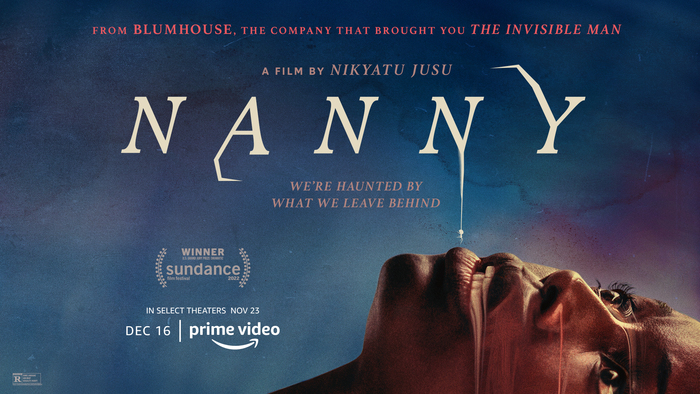Nikyatu Jusu crafts beautiful, haunting film with “Nanny”
November 30, 2022
Writer and director Nikyatu Jusu, a Sierra Leonean-American filmmaker, tells the story of Aisha, an immigrant living in New York City, and her job as a nanny for an upper-class family. Aisha finds herself forced to face a dark truth that threatens to ruin her ultimate goal: making a home for her child in America.
Jusu makes her feature-length directorial debut with “Nanny.” Taking on the role of both writer and director, Jusu crafts a narrative that suits her own artistic voice. Most of Jusu’s work as a writer and director surrounds the colloquially named genre of “elevated horror” or horror with deeper meaning. With “Nanny,” Jusu showcases her artistic strength by working with her cinematographer to make every frame feel like a modern painting. Precise details drive depth into the plot, such as colorful light bulbs tied to Jusu’s Sierra Leonean heritage to intentional costuming choices meant to convey emotional divides as well as class and cultural dichotomies.
The beauty of “Nanny” stands out in the number of themes the film tackles and discusses. In speaking with The Daily Texan, Jusu said she wrote the script to discuss her own cultural background, as showcased in lighting and coloring of individual scenes as well as in the dialogue exchanges between characters from different backgrounds. The film also delves into the saddening and thought-provoking psychological implications of leaving one’s home for another place, as well as the theme of motherhood. The willingness to sacrifice and give everything for one’s child is the biggest motivator in Aisha’s story and comes full circle in the film’s impactful conclusion.
Jusu said she hopes her script will teach audiences to see through the eyes of one another, and she hopes “Nanny” can “be an empathy machine” since filmmaking has the capacity to make audiences think.
Cinematographer Rina Yang worked alongside Jusu to craft artistic shots that occasionally defy certain rules of filmmaking such as framing and movement. These choices prove successful and allow for a deeper understanding of the characters’ motivations and bring a level of eeriness and horror to the script. One scene depicting a fight in water stands out as beautifully horrifying, possessing an eerie flow that mirrors the water.
“Nanny” promises to whisk audiences away on an emotional rollercoaster of horror and sadness, allowing them to take away lessons on empathy. Jusu’s feature-length directorial debut will leave audiences clamoring for more of her genius, artistic mind.
4 ½ surreal shots out of 5












